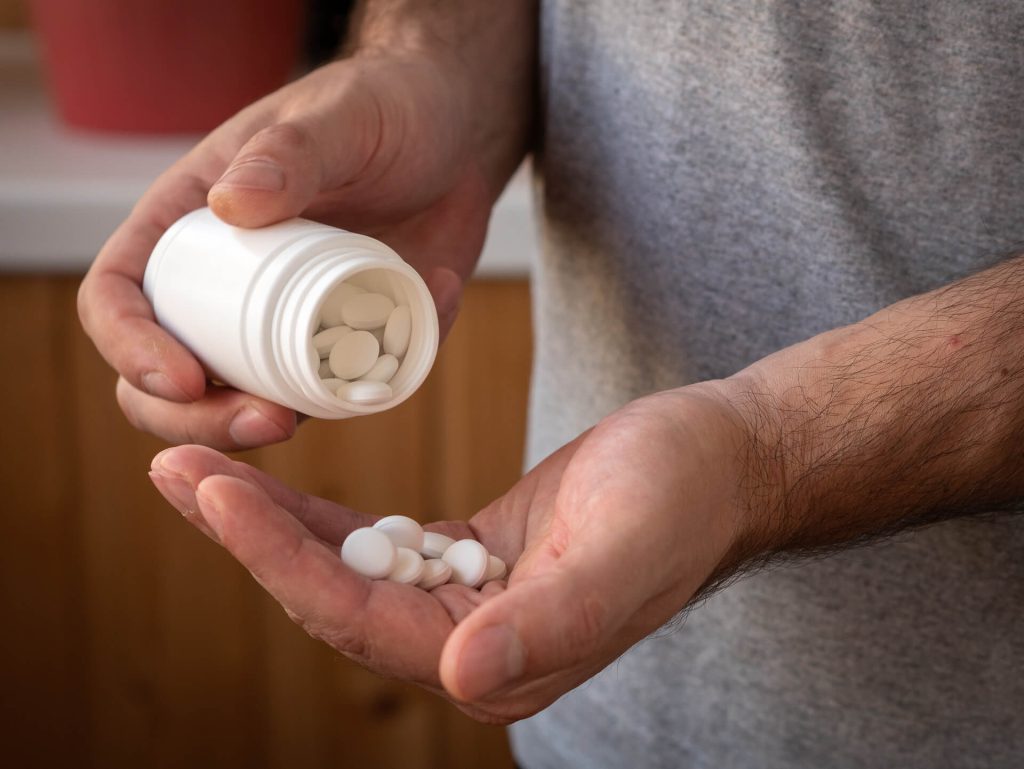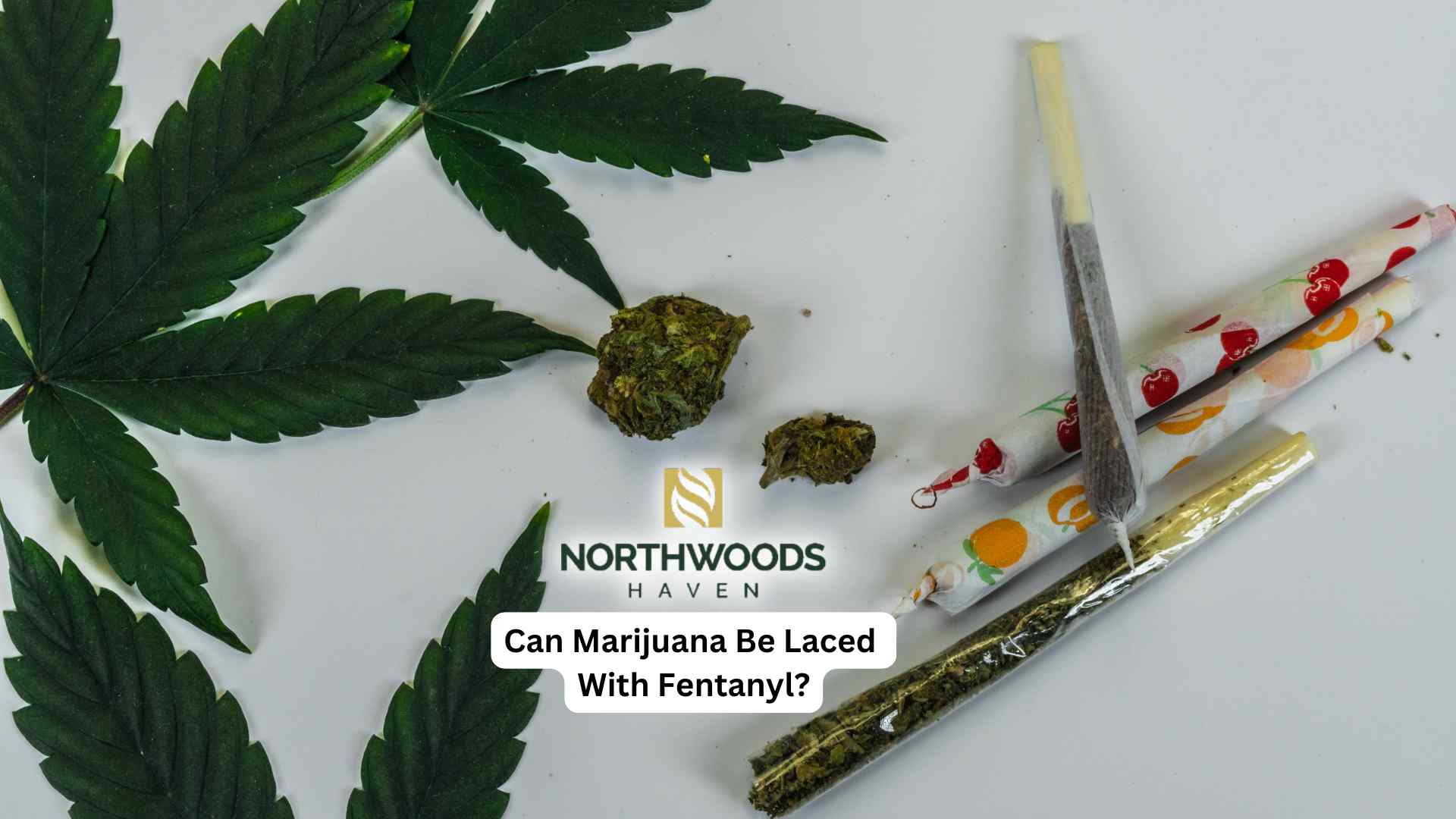The idea of marijuana laced with fentanyl has sparked concern and fear among the public, especially parents and young users. However, while fentanyl contamination in illicit drugs is a serious issue, the lacing of marijuana with fentanyl is sporadic and not a widespread problem.
This article examines the facts and myths surrounding this topic, offering a clear understanding of the risks and their context.
Understanding Fentanyl and Its Dangers
Fentanyl is a powerful synthetic opioid, estimated to be 50 to 100 times stronger than morphine. It is medically used to treat severe pain but has become notorious for its role in the opioid overdose crisis due to illicit manufacturing and distribution.
It impacts the brain by attaching to receptors that control the pain and reward systems. This attachment mimics the brain’s pain-relieving substances, effectively blocking pain signals and triggering a significant release of dopamine, a neurotransmitter associated with pleasure and reward.
This drug can cause respiratory depression and death even in tiny doses, making it extremely dangerous when used outside medical supervision.
Marijuana, on the other hand, is a psychoactive drug derived from the Cannabis plant, widely used for recreational and medicinal purposes. It primarily affects the brain’s cannabinoid receptors, producing effects such as relaxation, altered perception, and euphoria. Unlike fentanyl, marijuana is not an opioid and does not carry the same risk of fatal respiratory depression.
However, both fentanyl and marijuana can be addictive if you misuse them. One of the signs that you need to seek help for substance abuse is uncontrollable cravings, where intense urges to use a substance persist despite adverse consequences, often triggered by specific places, people, or emotions.
The combination of fentanyl and marijuana is concerning because of potential drug interactions, but the two substances act very differently in the body. If you find it extremely hard to discontinue the use of cannabis, our marijuana rehab program in Minneapolis is designed to help you overcome cannabis use disorder while maintaining daily responsibilities such as work or school.
Origins of the Fentanyl-Laced Marijuana Rumor
Reports of fentanyl-laced marijuana began to surface sporadically in the early 2020s, often fueled by isolated incidents or unconfirmed claims. One notable case was in Connecticut in 2021, where public health officials initially linked 39 overdoses to fentanyl-laced marijuana. However, further investigation revealed only one confirmed case of fentanyl contamination, likely accidental rather than intentional lacing.
Media coverage and social media amplified fears, sometimes without solid evidence, leading to widespread concern about fentanyl contamination in marijuana. This has contributed to a persistent myth that fentanyl-laced marijuana is common despite the lack of substantial proof.

Documented Cases and Their Context
While fentanyl-laced marijuana has been detected in some instances across the United States, these cases are sporadic and isolated. According to the New York Office of Cannabis Management, there are no verified incidents where marijuana was intentionally laced with fentanyl.
National surveys like the National Survey on Drug Use and Health (NSDUH) and reports from the Drug Enforcement Administration (DEA) and Substance Abuse and Mental Health Services Administration (SAMHSA) do not indicate fentanyl exposure connected to cannabis use. Even in the DEA’s 2024 Threat Assessment, fentanyl-laced marijuana does not appear as a current public health risk.
Myths vs. Facts
With so few confirmed cases and no substantial evidence from health agencies, it is easy to see how confusion can take hold.
| Myth | Fact |
| Marijuana is commonly laced with fentanyl. | Marijuana laced with fentanyl is extremely rare and not widespread. Most fentanyl contamination occurs in opioids and stimulants. |
| Fentanyl-laced marijuana is causing a large number of overdoses. | Overdoses linked to fentanyl-laced marijuana are very rare; most fentanyl overdoses involve other drugs. |
| Any marijuana can be contaminated with fentanyl. | Verified fentanyl contamination in marijuana is mostly isolated incidents, often accidental. |
| Fentanyl and marijuana have similar effects. | Fentanyl is a potent opioid causing respiratory depression; marijuana affects cannabinoid receptors and has different effects. |
These distinctions are crucial to prevent unnecessary panic and to direct public health efforts where they are most needed.
Potential Risks and Harm Reduction
Despite the rarity of fentanyl-laced marijuana, the risk of fentanyl contamination in the illicit drug supply overall remains a serious public health issue. Fentanyl’s potency means even small accidental exposure can be fatal, especially for children or people unaware of the contamination.
Potential risks include:
- Unintentional overdose due to fentanyl’s potency.
- Severe drug interactions if fentanyl and marijuana are used together.
- Increased risk among adolescents and young adults due to lack of awareness
Harm reduction strategies include:
- Public education campaigns to raise awareness about fentanyl risks and how to avoid contaminated drugs.
- Parental involvement in monitoring and discussing drug use with adolescents.
- Increased law enforcement surveillance to detect and prevent distribution of fentanyl-laced substances.
- Encouraging the use of fentanyl test strips where legal to check drugs before use.
- Access to naloxone, the opioid overdose antidote, for those at risk.
A multifaceted approach combining prevention, regulation, and treatment is essential to address the broader fentanyl crisis while clarifying the specific risks related to marijuana.
Final Thoughts from Northwoods Haven Recovery
The safest way to reduce risk is to avoid illicit or untested cannabis products and to stay informed about the evolving drug landscape.
At Northwoods Haven Recovery, our comprehensive outpatient treatment program in Minneapolis is designed to support individuals on their path to addiction recovery while maintaining their daily responsibilities. Our program’s evidence-based therapies include individual therapy, group counseling, medication management, and relapse prevention strategies, all tailored to each client’s unique needs. We help clients build a solid foundation for lasting sobriety and a fulfilling, substance-free future.



